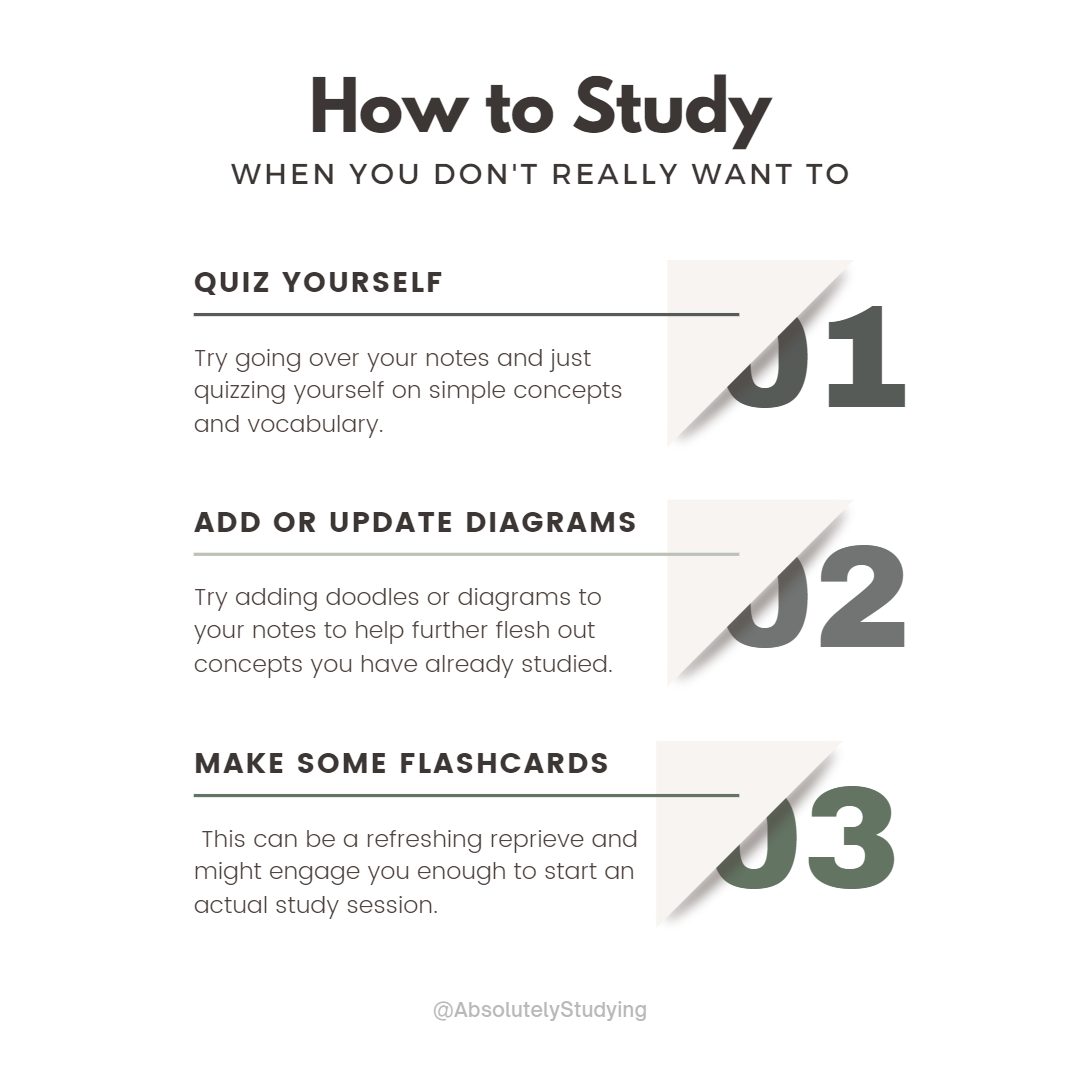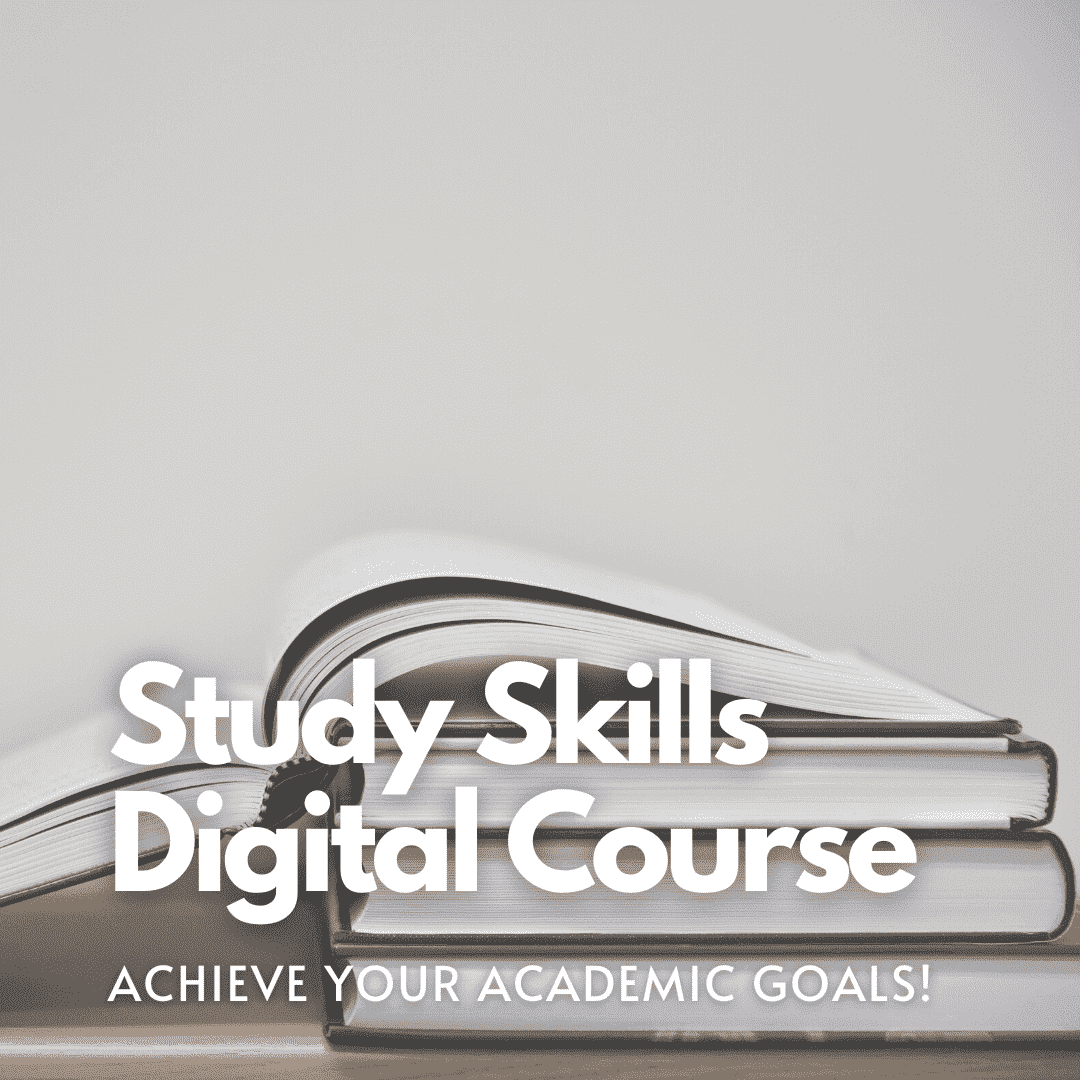Struggling to Study? Here’s How to Beat Procrastination
How to Beat the Procrastination Blues and Start Studying Today
Learn how to force yourself to study, even when you don’t want to.
Everything you need for the semester you want!
This bundle includes:
The Syllabus Study Planner
The Pomodoro Planner
A Confidence Tracker
A Q&A planner
The “Get Organized Checklist”
and more!
This workbook is full of super useful resources that can be applied to every aspect of your day.
* Disclaimer * Some of the posted links are affiliate programs. By clicking these links, I may receive monetary compensation. This will not alter the price or change the buyer's experience.
Studying when you are unmotivated is the worst. It is nearly impossible to study when you don’t want to. Often, forcing yourself to study just ends up causing more trouble than it’s even worth.
I know that if I try to force myself to study when my brain is just not that into it, it can be so frustrating. My mind constantly wanders, and I am thinking of the most random things. Sometimes, I realize that I have just been staring at the pages for hours with a blank stare, not actually taking in any of the information.
This just feels like a waste of time. I could be doing so many other things, but instead, I am fighting a losing battle. The trouble is that I can’t reschedule exams due to a lack of motivation. As much as I don’t want to, I still need to study for that test.
If you are bored with your old study activities, make sure to pick up my FREE Study Planner and activity tracker. It has more than 20 study activities to choose from and track. It also has study session planners, confidence trackers, and more!
But sometimes, a new activity isn’t even enough to motivate you. For those lazy days, sometimes you need a pick-me-up. Something simple to get into the groove of productivity. A gateway activity, if you will.
Today, we are going to cover how to beat procrastination. These suggestions are not for the regular study session. They are not as reliable for recall and productivity as the typical study sessions that we discuss. But if you need to study and can’t seem to muster any semblance of motivation, these could get you started.
We have all been there. If you haven’t, you will. At some point in this demanding journey through post-secondary, you are going to find that your tank of enthusiasm to study is running dry. In those cases, try one of these strategies to trick yourself into starting, and soon, motivation will follow.
Download your free study planner and activity tracker.
Everything you need for the semester you want!
How to Beat Procrastination and Start Studying Today
Studying in bed is not a great idea. Your brain associates your bed with sleeping, so retaining information will not be as effective as it would be if you were in a setting that your brain associates with learning or working.
But this article is not about the quality of your study sessions. Today, we want to introduce some baby steps you can take to get started when you really don’t want to study.
Motivation often comes from seeing progress. If you start by doing simple tasks, that will motivate you to make bigger and bigger ones. These small, effortless study techniques can get you feeling good about the progress you are making. This could make it easier to start an actual study session so you can get some measurable work done. These steps will make it easier to study even if you don’t want to.
Learning how to beat procrastination is about choosing progress over perfection. Sometimes, we have to allow ourselves to just do our best. Perfection is unattainable, and we have to be okay with that. Give yourself permission to not be perfect, even if it is just for a couple of hours. This is the best form of self-care you can employ.
I have mornings where the faster I try to move, the slower I seem to go. It’s like I am swimming through quicksand. Even the most straightforward task, like making a coffee, will take me hours. I just seem to get lost in… who knows what…
I notice these effects the most when I’m under a lot of stress or burnt out. This just frustrates me more and amplifies the problem. But I find that if I just stop fighting and slow down a bit, I can start to get a handle on my day.
Quiz yourself to boost motivation
Try going over your notes and just quizzing yourself on simple concepts and vocabulary. You don’t have to whip out a practice quiz or set a timer. Just pull out your binder or your notebook and review your notes.
You may not be as productive as usual, and that is okay. This is just about thinking of the material and reminding you of concepts you may have forgotten.
Looking over your notes is always great practice, but we are usually too busy to do it. When you get home from classes, you are often diligently finishing assignments, studying for tests, or recopying the scribbles that you took during the day. Simply flipping through your old notes and casually glancing over them is a nice change. This is a great option when you have to force yourself to study.
Just lie in bed, pull out one of your notebooks, and flip through it. Look over the different highlighted concepts or important words. Check out the graphs and diagrams, and think about their relevance or how they are helpful. Try to integrate old pages and models with the new information you have learned.
Add or update diagrams in your notes
Sometimes, you are motivated enough to get out of bed but not enough to memorize new information. In cases like these, try sprinkling a little creativity into our study sessions.
Try adding doodles or diagrams to your notes to help further flesh out concepts you have already studied. Especially if it is something that you associate with a process or workflow. This is an excellent gateway to getting productive, especially if you enjoy drawing and other creative mediums.
These diagrams don’t have to be involved. They can be rough sketches or even concept charts. Anything that allows you to create a visual representation of the information you are working with.
Try adding colours to help differentiate processes. If you are working on an existing diagram, try filling it out with new information you have learned since first creating it. You can even link completely new concepts by making a visual representation of how they are related.
If you don’t have room in your notes, feel free to add a new page that you can expand to your heart’s content. You can also quiz yourself on how much you can remember by drawing these diagrams without a reference.
When you feel like you are done, pull out your notes and update any information you might have missed.
Study Skills Digital Course
Learn how to create a stress-free comprehensive strategy!
Flashcards are a great productivity booster
Digital or analog flashcards are a tried-and-true study staple. The great thing about them is that they can be completed during a regular study session and pulled out at any time.
If you are deep in a slump and can’t seem to get motivated, flashcards might be the key to beating productivity. At your desk or in your bed, they can be pulled out for a quick study session with little preparation or clean-up.
We have an entire article devoted to different ways you can use flashcards. Mix up how you incorporate them into your study rituals to boost recall even further. This can be a refreshing reprieve and might engage you enough to start an actual study session.
I always find that these are easy to fall back on if I don’t want to study. It is simple enough to flip through the flashcard deck and review it. I don’t have to commit to a timeframe; I can just work through it until I have finished the set.
If you feel incredibly unmotivated, try mixing up your flashcard session with breaks and self-care until you are ready to get serious. It could be that you are seriously burnt out from being overly productive.
You don’t want to try to “push through” burnout. It will only result in diminishing gains. Try to create a study strategy that is tailored to you and includes plenty of self-care and downtime. By getting ahead of burnout and pacing yourself, you will be more likely to stick to your schedule and succeed.
Also, try rewarding yourself not only for the big wins but also for the small ones. It’s so important to appreciate yourself and all the effort you are putting into chasing your dreams. You deserve this reward. Don’t convince yourself that you have not worked hard enough for it yet.
Watch a documentary about the subject you are studying.
Documentaries are just watered-down versions of what you learn in class. They are simplified so that the general public can consume them with little to no background information.
It may seem that these would be useless to use for a study session, but that is not entirely accurate. Try watching a documentary with an informed eye. Try to catch what information is accurate and if they have anything wrong.
If you catch inaccurate information, try to figure out if it is entirely wrong or if they have just simplified it to be easier to understand. Then, try to figure out how you would explain it to someone with no background information.
Try comparing the information and the timeline or sequence of events to what you have learned in class.
Is it different?
Did they leave anything out?
Did they introduce any information that you were not aware of?
If they don’t dive deep into some of the more advanced concepts, try to think about how you could connect what you have learned. Would you have emphasized the same information that they do, or are there other facts that you would have led with or developed further?
You can also pause the documentary and talk it through to yourself out loud. This can help you better process the information and improve your understanding of it. Sometimes, things make sense and connect in our heads, but we fumble when we try to put them into words.
Being able to verbally communicate the information we know is critical. It is how our teachers and professors establish our final grades. Even if you are confident that you understand the connection, trying to say it aloud and putting it into words is still vital.
If someone is with you, explain it to them and teach them the differences. Are you able to describe the connections in a way that others can understand? Especially if they have no prior knowledge of the subject. If you can do this, then you know you have a solid understanding of the information.
If you are motivated enough, take notes as you watch. This can get you more involved in the content and boost memory retention. This is especially useful if the documentarians explain a complex concept in a way that clicks with you. It can help you to create mental associations with the material that can help during test time.
If taking notes is a little too demanding, try tracking how confident you are with the topics discussed with our free confidence tracker. This way, even if you don’t take notes, you can still record what you need to brush up on during your next study session.
Video call a friend for a virtual study Buddy
Sometimes, a little social interaction is all we need to lift our spirits. Try calling a friend on a video chat for a virtual study session.
I love to do this with my bestie. We will often just leave the chat open while we each do our own thing. Cleaning, studying or even working. It’s nice to know that you are not alone, even if you are in the house by yourself.
You can also use this opportunity to do a joint study session. If you are in the same class, try quizzing each other using your notes. This is an exciting experiment because every student will have a slightly different perspective on which topics are important.
You may have considered some concepts more critical than others and put more time and effort into studying those. However, if your friend thought something else was more important, they will likely focus on those topics and test you on the information you might have missed.
If you both use flashcards, you can also try quizzing each other on your respective decks. You will have the same advantages of perspective, increasing your knowledge.
Questions could also be phrased differently. This causes you to need to think harder about how you frame your answers. This is another excellent way to practice for upcoming tests.
If you are not in the same class, you can try to teach them different concepts that you have learned. Explaining them to someone with little or no knowledge of the model is another excellent way to prepare for a test.
You have to be able to clearly communicate your understanding of the topic. In this way, explaining it and teaching it to others can help you formulate and clarify your exact knowledge.
You can also send them a copy of your notes by text or email. This will give them access to the material, and they can then test you to make sure you know your stuff. This can put you in the hot seat and, more accurately, simulate testing conditions, which is why having someone quiz you is the best way to study.
These exercises are not ideal and should not be relied upon regularly. These are simple ways to start you on a path to productivity when you don’t want to study.
The most reliable way to get motivated is to see progress. By starting with these baby steps, you can quickly gain the momentum you need to crawl out of bed and get studying.
Never study in bed
Your brain associates your bed with sleep and relaxation. Any studying that you do while in it will never be as effective as sitting at a desk or table. But sometimes, tests and deadlines are looming, and some effort is better than none. There will be times when you have to figure out how to study when you don’t want to.
Unfortunately, we live in a perfectionist, burnout culture. We constantly have to remind ourselves that progress is better than perfection. We need to allow ourselves the flexibility to just be “good enough” sometimes and be happy with that.
Next time you are frustrated with yourself because you can not force yourself to get motivated, try one of these strategies. It is okay to feel good about trying, even if you fall a little short of perfection, just this once.
Don’t forget to pick up my Free Study Planner and Activity Tracker. It will help you to track your study progress throughout your classes. It also has a confidence tracker, study session planner, and more! Download it here.
I would like to be transparent so that there are no misunderstandings. As an affiliate, I may earn a small commission from any products linked in this post. This is not a sponsored post, and I was not asked to recommend these products. These are products that I genuinely love and want to share with my audience.









